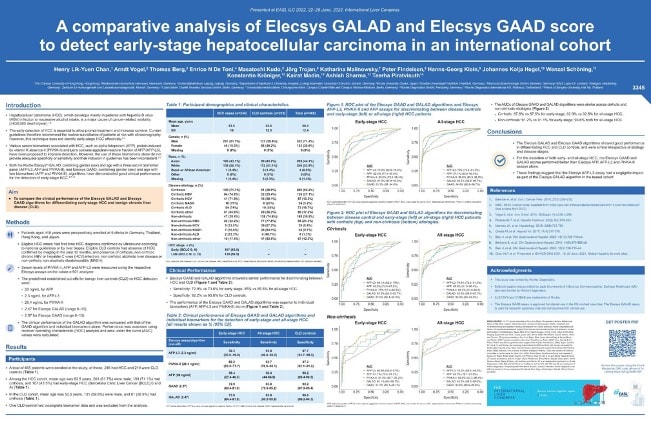Every year, liver cancer claims 740,000 lives worldwide, with 42% of these deaths occurring in China. In China, the 5-year survival for hepatocellular carcinoma (HCC) patients is just 14.4%, and over 80% of liver cancer patients diagnosed are those with Hepatitis B. Despite this alarming statistic, early screening and comprehensive, end-to-end disease management approaches remained limited in China. This created a critical gap in care, one that Zhuhai People’s Hospital in collaboration with Roche, aimed to address with the initiation of Project Pearl in 2022.
Project Pearl is a pioneering multi-stakeholder initiative designed to provide holistic care to patients with chronic liver disease by enabling end-to-end chronic disease management involving healthcare professionals, hospital administration, and payors. At its core, the project leverages on the Liver Integrated Solution, comprising of two key digital solutions:
- Liver Disease Pathway (LDP), a digital platform streamlining HCC screening workflow and offering a patient portal for better care management
- Oncology Hub (OH), a clinical workflow for multidisciplinary team meetings and decision support system
This integrated solution empowers clinicians with the right information at the right time, ensuring informed, precise decision-making throughout the patient’s journey.
Let’s explore how the patient’s journey has evolved under this new framework. Upon their first hospital visit, patients with chronic liver disease are registered on the digital solution, and are evaluated with abdominal ultrasound, AFP, PIVKA-II, and GAAD, aimed at early detection of HCC. The patients’ data and reports are synchronized for physicians to view in real time. Meanwhile, risk stratification scores provide physicians with a clearer understanding of each patient’s likelihood of developing liver cancer, allowing for more personalized, periodic surveillance plans. Physicians are able to easily arrange follow-ups with the patients and track their disease progression over time. Beyond the hospital, an interoperable mobile platform extends support with follow-up reminders, report interpretation, patient education, and 1 on 1 consultation. This empowers patients to better understand their condition and also ensures they receive continuous, standardized care, essential for early detection and intervention. For physicians, the new patient journey not only streamlines operations but also enhances clinical effectiveness by enabling early detection, offering curative treatment options, and improving patient outcomes.
The entire clinical and operational workflow from screening and diagnosis and follow-up is now automated, making it easier to manage every step of care delivery. Once patients are diagnosed with HCC, they are seamlessly transitioned into a comprehensive treatment management system. This integrated approach addresses the following challenges that are commonly observed in MDT care delivery. Lack of standardized MDT clinical protocol, absence of robust post-treatment follow-up system, and limited capabilities to analyse and gain insights from treatment data. Upon transition, a patient’s 360 report is automatically generated to show their entire patient history. This empowers them with data-driven insights to deliver clinical, operational and economic outcomes to manage HCC treatment more effectively and confidently.
Ultimately, Project Pearl enables a win for all stakeholders. For patients, early detection and personalized care plans lead to better outcomes. For physicians, streamlines, standardized workflows and digitally-enabled decision-making support clinical practice in a timely and effective manner. For the health system, the project accelerates the goals of “Healthy China 2030”, improving outcomes at reduced costs. By improving both patient outcomes and healthcare efficiency, we are taking significant steps toward a future where liver cancer can be detected early and treated effectively, creating hope for thousands of lives.
Since its launch, Project Pearl has seem promising results. Till date, 4,972 patients had been screened, and 40 cases of HCC had been diagnosed. Remarkably, 39 of those cases were detected at an early stage, offering significantly better chances for curative treatment. These outcomes demonstrate the project’s real-world impact in transforming liver cancer care and improving patient outcomes.
